Science & Tech
-

A ‘cocktail’ recipe for brain cells
Stem cell biologists discover how to regenerate type damaged in ALS, spinal cord injuries

-

When you do the math, humans still rule
Harvard’s Lauren Williams, a MacArthur ‘genius,’ joins international effort to challenge notions of AI supremacy
-

‘Imagination’
Less like a picture, more like a video game? Cognitive scientist explains how we ‘see’ what isn’t real.
-

Breaking chess’s rating stalemate
Ranking skill can be tricky when the best players draw more than they win, so a Harvard statistician invented a new method

-

How AI deepfakes have skirted revenge porn laws
Limits unclear when explicit images of individuals look real, but are digitally generated
-
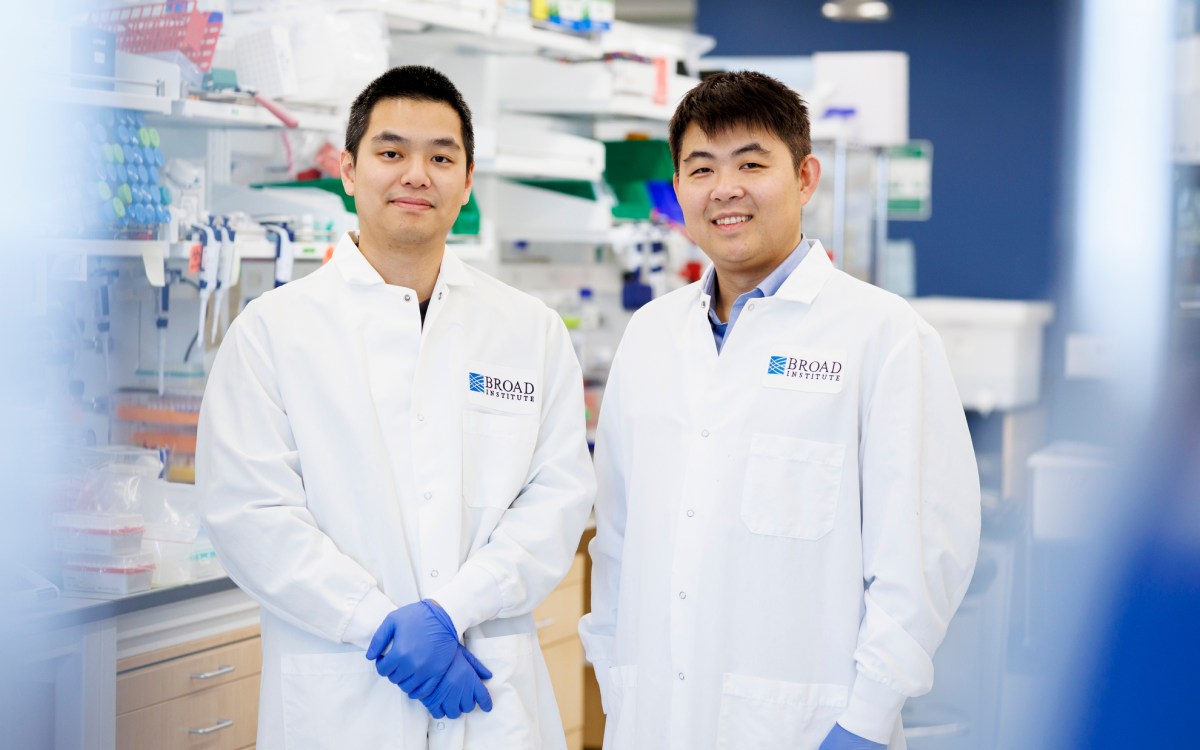
How did that cancer cell become drug-resistant?
Researchers find way to create microscopic archives of gene activity to gain insights into how, why changes happen

-
Understanding tiny reactions
Scientists believe that tiny carbon nanotubes may also create something like atomic-scale black holes.

-
Looking for life beyond Earth
Scientist Carolyn Porco explored the deeper regions of the solar system and her work with the Cassini mission to Saturn during a talk at Radcliffe.
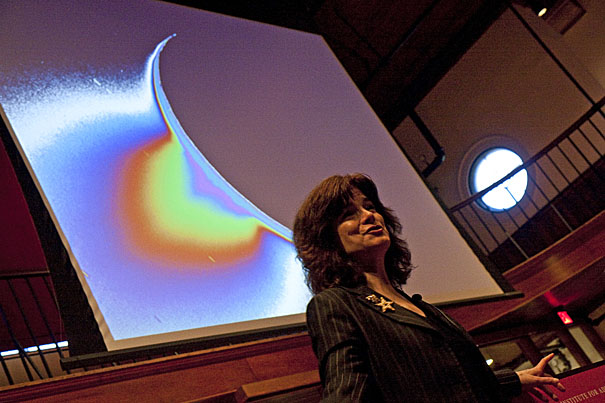
-
Kicking the habit
Clean, renewable wind and solar power may be the most-preferred fossil fuel alternatives, but their land-hungry collecting requirements make them difficult options for replacing more conventional power sources, according to a British energy…
-
An addiction to fossil fuels
David MacKay, physics professor at Cambridge University and scientific adviser to the United Kingdom’s Department of Energy and Climate Change, outlines challenges facing efforts to eliminate fossil fuels from the world’s energy mix.

-
Posing the Big Questions
In 1900, renowned mathematician David Hilbert laid down a challenge to future generations: 23 handpicked mathematical problems, all difficult, all important, and all unsolved. Since then, countless mathematicians around the world have struggled…
-
Women in life sciences still lag in compensation, advancement
Women conducting research in the life sciences continue to receive lower levels of compensation than their male counterparts, even at the upper levels of academic and professional accomplishment, according to…
-
Media reporting HSPH professor to be named head of federal Medicare, Medicaid programs
Major media outlets are this weekend reporting that President Barack Obama has selected Harvard School of Public Health (HSPH) professor Donald M. Berwick, MD, MPP, to head the federal government’s…
-
Online portal, created by Harvard center, improved on-the-ground earthquake response
Count Harvard computer experts among those who responded swiftly to the deadly earthquakes in Haiti and Chile, throwing their expertise behind an effort to improve information flow for responders on…
-
Portals into Haiti, Chile
Harvard’s Center for Geographic Analysis created Web clearinghouses to aid information flow in response to Haiti’s and Chile’s earthquakes.
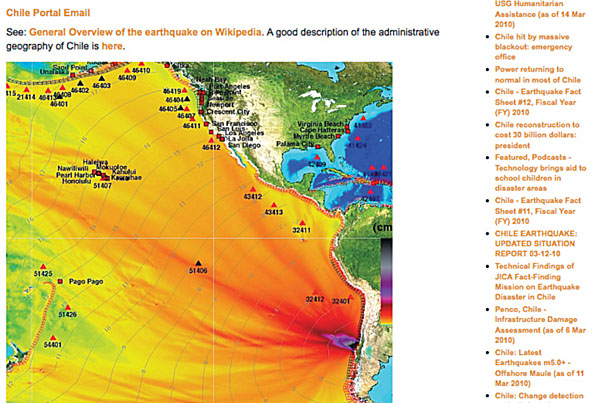
-
This is CS50
Creative vibe colors enormous CS 50 innovation fair
-
An earlier changing climate
Human societies in Europe at the end of the last ice age expanded north across a harsh but changing environment, as glaciers melted and the world got warmer and more humid.
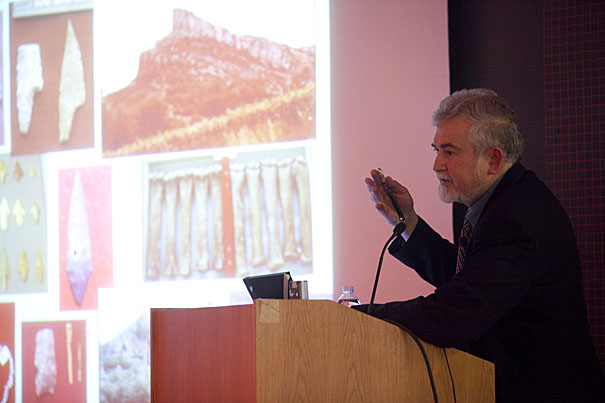
-
Scientists discover how ocean bacterium turns carbon into fuel
Reduce. Reuse. Recycle. We hear this mantra time and again. When it comes to carbon—the “Most Wanted” element in terms of climate change—nature has got reuse and recycle covered. However, it’s up to us to reduce.
-
Reality check
Author-turned-activist Bill McKibben says the fight to arrest global warming requires an international movement to force political change.

-
Signs of ‘snowball Earth’
Researchers find strong clues that sea ice covered tropical climes, including the equator, 716.5 million years ago, suggesting there was a time of a “snowball Earth.”

-
Scientists find signs of ‘snowball Earth’
Geologists have found evidence that sea ice extended to the equator 716.5 million years ago, bringing new precision to a “snowball Earth” event long suspected of occurring around that time.
-
New source of natural gas
Chesapeake Energy’s chief executive officer, Aubrey McClendon, struck a positive note on the future prominence of natural gas as an energy source, though some critics decried new gas extraction techniques.
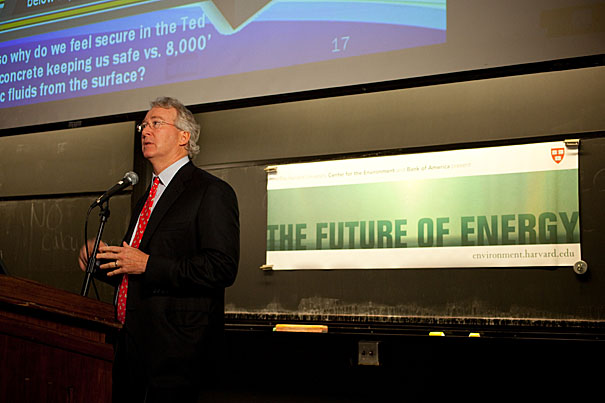
-
Time to change the menu
Climate change, population growth present fresh challenges to a global food supply system already showing cracks.
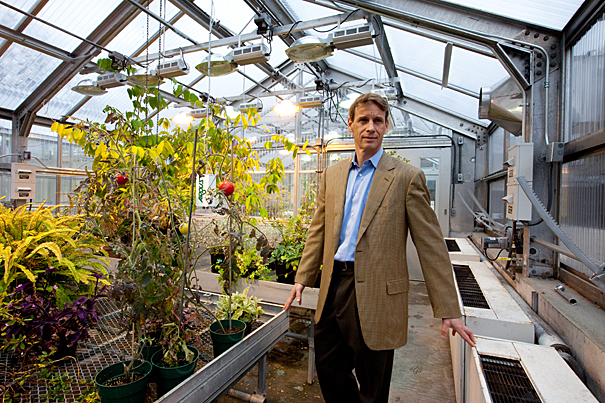
-
Another piece of cancer puzzle falls into place
An international team of researchers has created a genome-scale map of 26 cancers, revealing more than 100 genomic sites where DNA from tumors is either missing or abnormally duplicated compared to normal tissues.…
-
Turning to the wind
In a quest for cheaper power, HBS professor helps Maine islanders get wind turbine project off the ground.
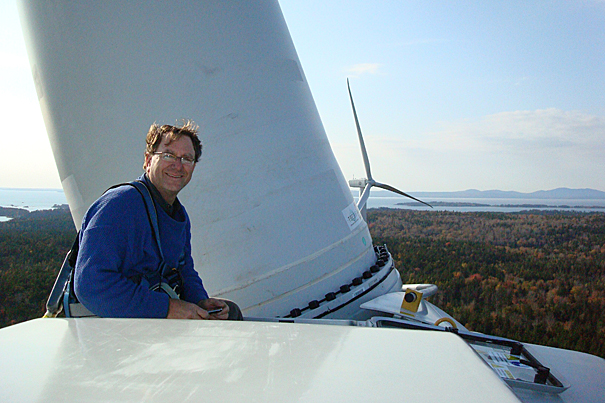
-
Virtually connected
Making good use of the Web, students from the Harvard Graduate School of Education are using virtual internships to gain valuable experience without leaving home.

-
Marrying high performance optics with microfluidics
Harvard engineers have successfully created a silicone rubber stick-on sheet containing dozens of miniature, powerful lenses, bring them one step closer to putting the capacity of a large laboratory into…
-
Digging deep into diamonds
By creating diamond-based nanowire devices, a team of Harvard researchers has taken another step toward making applications based on quantum science and technology possible.
-
Digging deep into diamonds
Researchers at Harvard’s School of Engineering and Applied Sciences find that a diamond nanowire device could lead to a new class of diamond nanomaterials suitable for quantum cryptography, quantum computing, and magnetic field imaging.
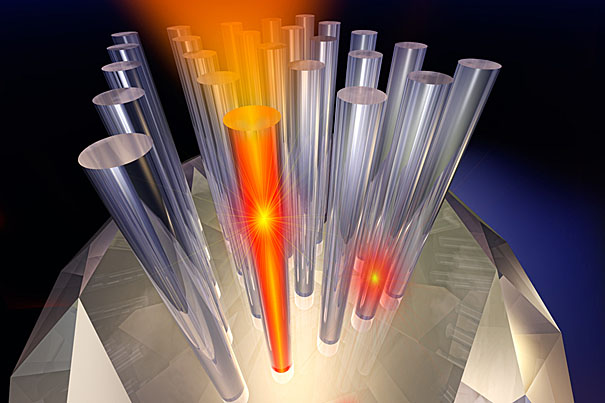
-
Global warnings
Harvard Kennedy School panelists say that the slippage in mainstream media outlets means more voices argue about environmental issues, prompting the public to have difficulty sorting out the cacophony and even to doubt global warming.
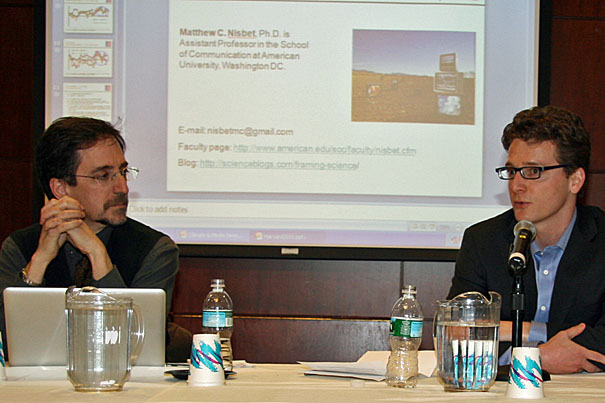
-
National Institute on Aging funds two new “Roybal Center” programs at Harvard
Harvard Medical School professor Nicholas Christakis, whose work focuses on social networks, and economics professor David Laibson, who examines how and why people make the decisions they do regarding savings…
-
When success spells defeat
Invasive plants are beneficiaries of climate change in Thoreau’s woods.

-
For bonobos, it’s one for all
Daycare workers and kindergarten teachers tend to offer young humans a lot of coaching about the idea of sharing. But for our ape cousins the bonobos, sharing just comes naturally.
-
Toy story
Scientists have long studied how atoms and molecules structure themselves into intricate clusters. Unlocking the design secrets of nature offers lessons in engineering artificial systems that could self-assemble into desired…
-
Learning from toys
Using magnetic toys as inspiration, researchers tease out structures that echo self-assembled clusters of atoms and molecules.

-
Barefoot running easier on feet than running shoes
New Harvard research casts doubt on the old adage, “All you need to run is a pair of shoes.”


